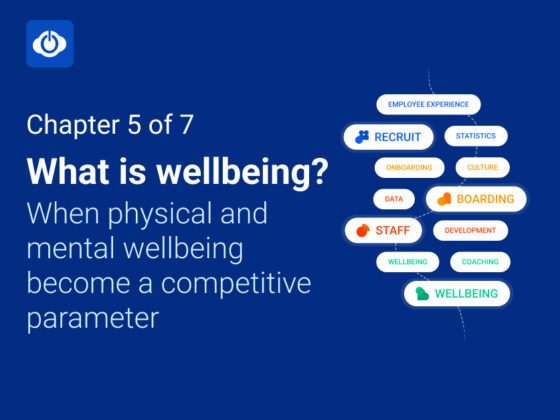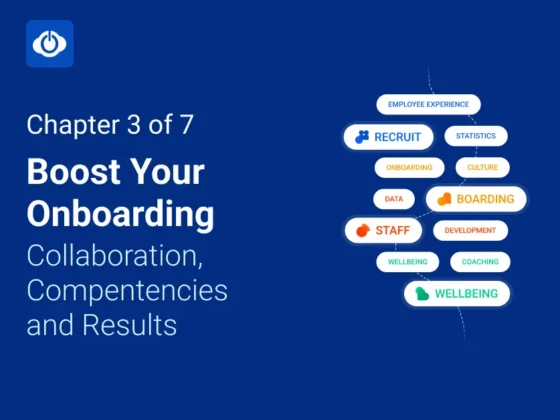7 Tips for Employee and Manager: How to Prepare for a Well-Being Conversation
A well-being conversation is a dialogue between an employee and their manager focused on employee well-being and job satisfaction. Here are 7 tips on how both parties can prepare to ensure a successful conversation.
Well-being in the workplace is essential for everyone involved: for the manager, who is responsible for creating a healthy and efficient work environment, and for the employee, who needs to feel valued, supported, and motivated in their work.
Corporate programs that support work/life balance promote productivity, reduce turnover, and improve employees’ mental and physical health. A well-being conversation can help identify potential imbalances, address the employee’s needs for support and development, and create an open dialogue about working conditions to promote well-being and productivity.
A manager must create a safe, open atmosphere where employees feel heard and respected. The well-being conversation should be a two-way communication in which both parties share their experiences and needs. Communication is an important soft skill.
What Is a Well-Being Conversation?
A well-being conversation is a structured discussion between an employee and their manager that focuses on the employee’s well-being and work environment. The goal is to identify challenges, strengthen collaboration, and find solutions to improve well-being and effectiveness.
For employees and managers, the well-being conversation is an opportunity to exchange feedback, discuss working conditions, and develop specific actions to enhance job satisfaction.
However, it’s not enough to have just one well-being conversation. Ongoing conversations that complement and help sustain development are far more effective than a single conversation where goals are simply set. A pulse survey can also supplement regularly “measuring” well-being on the office floor.
7 Tips: What Should You Prepare for a Well-Being Conversation
The manager and employee must be well-prepared for a well-being conversation to be effective. It requires both parties to be open and honest about their experiences, needs, and expectations. The conversation should focus on understanding what promotes well-being and job satisfaction and how any challenges can be addressed.
A successful well-being conversation can strengthen the relationship between the manager and employee, create a better work environment, and ensure the employee feels supported in their development. Ultimately, it leads to happier employees who stay at the company.
Below are 7 tips for employees and managers to help ensure a better well-being conversation. The questions are designed as reflections, which can be used to note what you want to focus on during the conversation.
You might also like: 3 Tips for Successful Performance and Development Reviews
Preparation for the Employee
As an employee, reflecting on your well-being before the conversation is important. Consider the following questions:
- How do you experience your daily workload?
- Are there specific challenges affecting your well-being?
- What is working well, and what could be improved?
- Which tasks give you the most energy and motivation?
- Do you feel your skills are being fully utilized?
- How do you experience collaboration with colleagues and management?
- Is there anything in the work environment that could improve your well-being?
Prepare by noting specific examples to clearly explain your experiences and desires. This will help the manager understand your needs and find relevant solutions.
Preparation for the Manager
As a manager, you are key to creating a safe framework for a conversation about well-being. Prepare by:
- Reviewing the employee’s recent tasks.
- Considering specific topics that might be relevant to discuss, such as the work environment or development opportunities.
- Using HR tools to structure the conversation and cover all essential points.
- Reflecting on how you can support the employee in their professional development.
- Preparing questions about the employee’s well-being, such as their experience with workload.
- Consider concrete examples where the employee has excelled and how this can be further developed.
- Identifying any challenges within the team or organization that could impact the employee’s well-being.
Remember, the well-being conversation is about dialogue, not just one-way communication. Ask questions that encourage the employee to share their perspectives.
How to Follow Up After the Well-Being Conversation
Once the well-being conversation is concluded, it’s crucial to ensure the topics discussed don’t just stay on paper. The manager should take responsibility for acting on the agreements made and ensure that the employee receives the necessary support.
It could range from adjusting tasks to offering additional resources or training. Employees should feel that their input has been taken seriously and that efforts are being made to improve their well-being.
A follow-up is also necessary to ensure that the agreed-upon changes make a difference. A brief conversation or meeting where the manager and employee assess whether the new actions have had the desired effect can be a good way to maintain momentum. In this way, the well-being conversation becomes part of an ongoing process that strengthens the employee’s well-being and the overall work environment.
FAQ: Well-Being Conversation in the Workplace
What is a well-being conversation?
A well-being conversation is a dialogue between an employee and manager focused on the employee’s well-being and work environment.
How should employees prepare for a well-being conversation?
Employees can prepare by reflecting on their well-being, identifying challenges, and noting concrete examples.
How should managers prepare for a well-being conversation?
Managers can prepare by reviewing the employee’s tasks, using HR tools, and planning relevant topics for discussion.
What are the key topics in a well-being conversation?
The key topics include the work environment, workload, collaboration, and development opportunities.
How often should well-being conversations be held?
It depends on the company, but many organizations recommend holding well-being conversations at least once a year.





